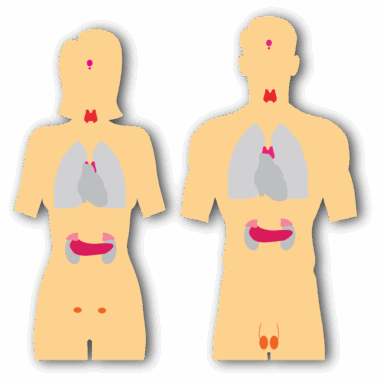Hormones and Detox: Tips for Maintaining Balance During Fitness Training
When embarking on a fitness journey, understanding the relationship between hormones and detoxification can significantly impact your overall well-being. Hormones like cortisol, insulin, and adrenaline play critical roles in how your body responds to exercise and stress. An imbalance in these hormones can lead to fatigue, weight gain, and reduced motivation. Therefore, focusing on techniques that can help detoxify the body and restore hormone balance is crucial. This can also enhance performance and recovery times during workouts. Regular physical activity helps to regulate insulin levels, promoting a healthy response to dietary choices. Additionally, combining exercise with proper hydration and nutrition aids in the detox process, helping to flush out toxins. Incorporating specific foods known for their detox properties can further support hormone health. For instance, leafy greens and fruits are high in antioxidants, which may combat oxidative stress. Moreover, paying attention to getting sufficient rest and managing stress can profoundly influence hormone levels and detoxification. To achieve optimal results, integrate these practices into your daily routine and enjoy improved fitness outcomes.
Understanding Hormonal Imbalances
Many people overlook the effects of hormonal imbalances on their fitness routines. For instance, high cortisol levels due to chronic stress can hinder fat loss and muscle gain. It can also lead to increased cravings for sugary foods, which is counterproductive to fitness goals. Recognizing symptoms of hormonal imbalance is essential; these can include mood swings, fatigue, sleep disturbances, and changes in appetite. Addressing these issues should start with a consultation with a healthcare professional. Blood tests evaluating hormone levels can provide insight into any potential imbalances. Additionally, lifestyle modifications, including regular exercise and stress management techniques, can help mitigate these issues. Yoga, mindfulness, and deep-breathing exercises are beneficial techniques that can lower cortisol levels. Nutritional choices also play a key role: include more healthy fats that are vital for hormone production. Olive oil, avocados, and fish are excellent sources. Furthermore, ensuring adequate protein intake helps build muscle, which is crucial for maintaining a healthy metabolism. Understanding and addressing these imbalances can pave the way for more effective training and overall wellness.
Detoxification is a natural process the body undergoes to remove harmful substances. However, enhancing this process, especially in conjunction with fitness training, can yield significant benefits. Engaging in regular exercise not only helps to cleanse the body but also stimulates hormonal balance. Practices such as sweating during workouts allow toxins to be released through the skin. Additionally, lymphatic drainage can be aided by physical movement, which is crucial for effective detox. It’s essential to couple exercise with a clean diet rich in fiber and hydration to support detoxification pathways. Foods high in fiber, like vegetables and whole grains, facilitate digestion, thus promoting elimination of waste. Furthermore, staying well-hydrated helps the kidneys filter out toxins more efficiently. Herbal teas, particularly detox varieties, can also provide essential support. Incorporating a combination of these strategies into a fitness plan enhances overall effectiveness. Having checklist points, as well as setting reminders for proper hydration, can improve adherence. Consider tracking progress regularly to stay motivated and accountable. This multifaceted approach supports the body during detox and enriches the workout experience.
Nutrition plays a critical role in maintaining hormonal balance and efficiency during fitness training. A balanced diet that focuses on whole foods can make a remarkable difference. Emphasizing complex carbohydrates over simple sugars helps in stable energy release throughout the day. Integrating a mix of macronutrients—proteins, fats, and carbs—is fundamental for physical performance and recovery. Additionally, micronutrients such as vitamins and minerals support various body functions, including hormone production. Iron, magnesium, and zinc, for instance, are vital in hormone regulation. Lean proteins, such as chicken or legumes, provide essential amino acids, which are basic units in hormone synthesis. Healthy fats found in nuts and seeds can positively influence hormone health by aiding cellular functions. Including antioxidant-rich foods like berries can protect against oxidative stress that disrupts hormone balance. Regular meals prevent energy dips which can adversely affect workouts. Planning meals ahead helps to ensure a well-rounded diet, particularly before and after training sessions. Furthermore, don’t overlook the importance of timing; consuming nutrients at appropriate times can maximize workout benefits.
The Role of Sleep and Recovery
When focusing on fitness and hormonal health, sufficient sleep is often underestimated. Sleep is essential for recovery and hormonal regulation, particularly for growth hormone, which plays a significant role in muscle development. Poor sleep can lead to hormonal disruptions that may hinder fitness goals. Individuals who experience inadequate sleep often report increased hunger and cravings, primarily driven by hormonal fluctuations. Therefore, prioritizing a good sleep regimen can help maintain balance. Aim for a minimum of seven to eight hours nightly to promote recovery and maintain metabolic processes. Creating a conducive sleep environment is important; consider eliminating distractions and maintaining a consistent schedule. Additionally, incorporating relaxation techniques before bed can improve overall sleep quality. Engaging in gentle stretching or practicing meditation can enhance deep sleep stages. Furthermore, monitoring caffeine and electronic device usage in the evening can aid in maintaining natural sleep patterns. Ultimately, ensuring proper recovery through quality sleep complement the efforts made during workouts. This holistic approach fosters a sustainable fitness routine while supporting hormonal health and detoxification processes.
Stress management techniques also play a vital role in maintaining hormone balance during fitness training. Elevated stress levels can lead to an imbalance in hormones like cortisol, negatively impacting motivation and energy. Finding effective ways to manage stress is essential for anyone seeking balance while engaged in physical training. Regular physical activity itself is a powerful stress reliever, helping to produce endorphins that enhance mood. However, pairing physical activity with mindful practices can create a well-rounded approach. Techniques such as yoga, tai chi, or simply spending time in nature can help lower stress levels and promote deep relaxation. Breathing exercises are also effective in regulating the body’s response to stress. Additionally, maintaining a strong social network can provide support during challenging times, which also mitigates stress responses. Structuring a ‘me-time’ routine—whether through hobbies or self-care practices—can foster personal well-being and emotional resilience. Planning for regular breaks during training periods can sustain performance and enjoyment of the process. Incorporating these strategies helps create a balanced lifestyle where fitness, hormones, and detox efforts harmonize.
Finally, consistency remains the cornerstone of achieving hormonal balance and effective detox while training. Developing habits that encourage long-term adherence to fitness and nutrition is vital for success. Establish a routine that incorporates various elements tailored to individual needs—such as scheduled workouts, meal plans, and relaxation periods. Using technology to track progress can provide invaluable feedback. There are numerous mobile applications available that facilitate meal tracking and workout logging. Additionally, consider setting SMART goals—specific, measurable, achievable, relevant, and time-based—to enhance motivation and maintain focus. Regular evaluations can help tweak plans to fit changing needs or goals. Furthermore, engaging with like-minded community groups can foster accountability and encouragement, making the journey more enjoyable. Also, remember that patience is key; hormonal balance and detox benefits take time to manifest. Celebrate progress along the way, acknowledging both small wins and major milestones. This persistence will not only enhance physical fitness but also promote overall well-being and balance within one’s life. Ultimately, by integrating these elements, a successful and harmonious fitness training journey can be achieved.





